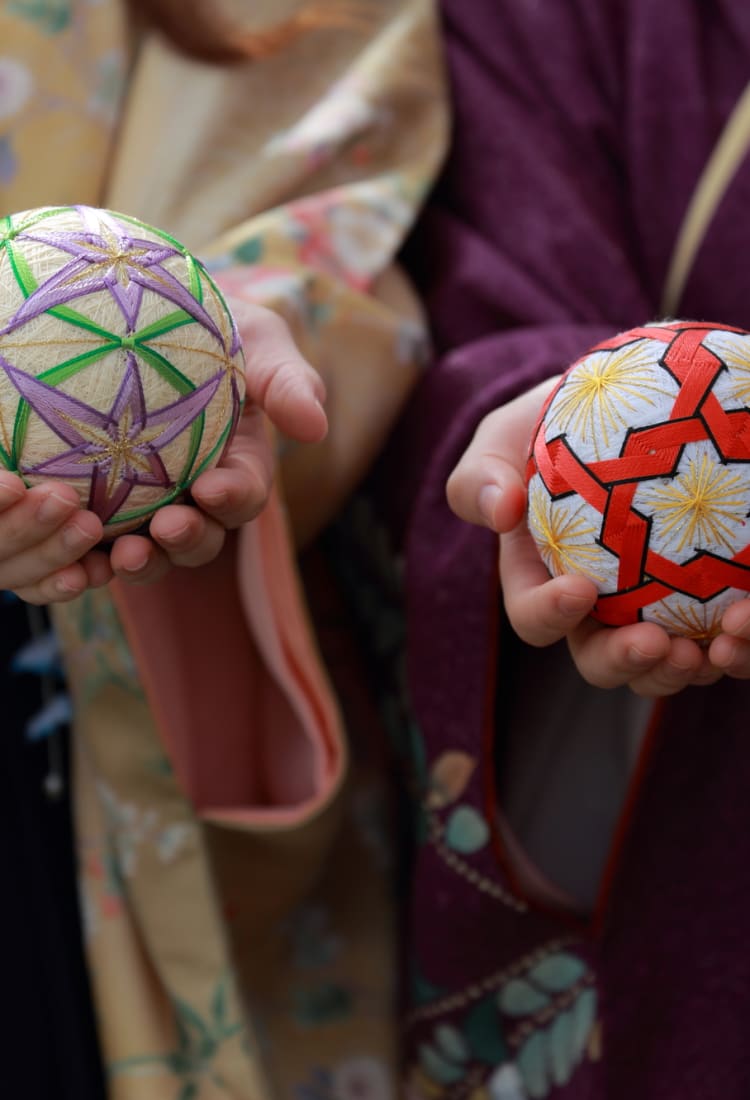
2021.08 Discover the Beauty of Japanese Traditional Crafts: Temari, Yosegi Zaiku and Echizen Blades
Learn about Japan’s manufacturing legacy through different forms of craftsmanship
Here we’ll take a look at three unique crafts still produced through traditional methods: (1) elaborate and beautifully adorned temari balls, (2) intricately devised and surprisingly complex wooden Yosegi Zaiku marquetry from Hakone and (3) forged-welded knives created in Echizen, Fukui Prefecture, a hot spot for blacksmithing and blade manufacturing.
These items also make excellent souvenirs or gifts, giving visitors a chance to take a piece of Japan’s history of dedicated craftmanship and traditional manufacturing home with them.
Temari: ornate, enchanting balls with ancient history
Temari balls come in different sizes and are embroidered with complex geometric or ornamental patterns. They’re created with simple materials including paper, rice husks and cotton thread, but temari artisans can create a staggering range of patterns including flowers, stars, birds, flowers or even waves.
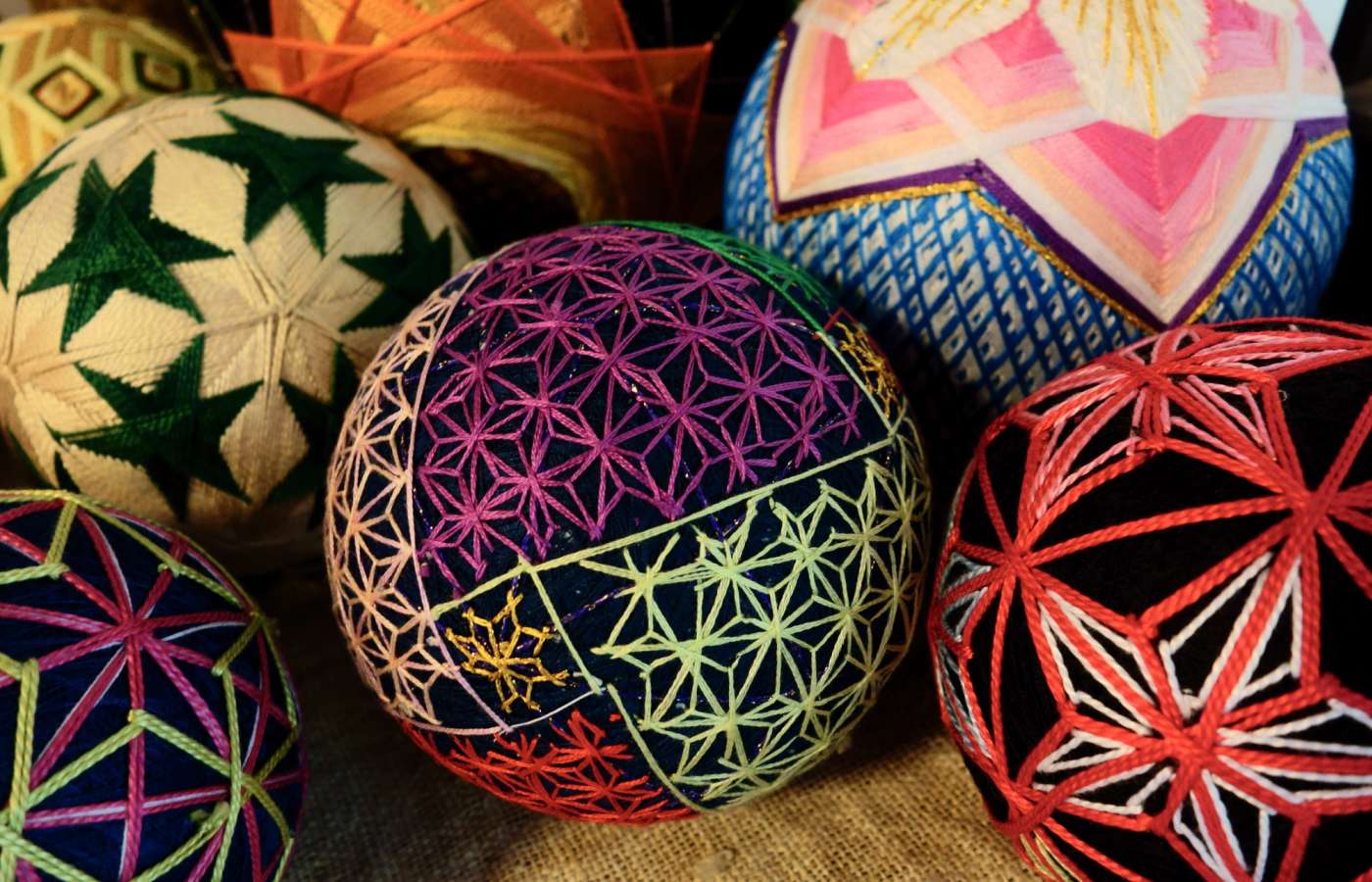
Although the art form originally came from China, artisans in Japan took a unique approach to the temari ball craft by adopting new methods and materials. The earliest temari balls were used for juggling (called otedama) but quickly developed into bouncing toys when rubber imports were incorporated into the designs. These new temari balls were used to play kemari, a type of ancient hacky sack played in the Heian era (794–1185). A non-competitive sport, the goal was simply to keep the ball in the air for as long as possible without touching the ground.

For many years, temari balls were a New Year’s gift for children, and artisans of nobility would compete to create the most beautiful and intricate patterns. Many of these were crafted of fabric taken from old kimonos, further adorned with decorative stitching to highlight geometric motifs in the designs. Antique temari are still common in Japan, so visitors may find rare or especially old ones on their trip. Matsumoto, a picturesque castle town located in Nagano Prefecture, is famous for the temari craft, so much that you’ll find intricately designed temari motifs on the manhole covers! Visitors will also find temari artisans and purchase their uniquely embroidered designs in Kagawa Prefecture, on the island Shikoku in Southern Japan. As an expression of Japanese ingenuity and traditional craftsmanship, temari make very memorable souvenirs and great decorations for your home.
Yosegi Zaiku: mystical, awe-inspiring woodworking marquetry from Hakone
Yosegi Zaiku is a captivating form of woodworking marquetry made famous in the Hakone area of Kanagawa Prefecture. The art form was developed over 200 years ago by an artisan by the name of Nihei Ishikawa, who created these intricate handicrafts to sell to travelers along the main route between Tokyo and Kyoto. Intricate layers of shaved wood in natural colors are interlaid to form complex and stunning patterns used in daily items like picture frames, kitchen utensil stands and chopsticks.
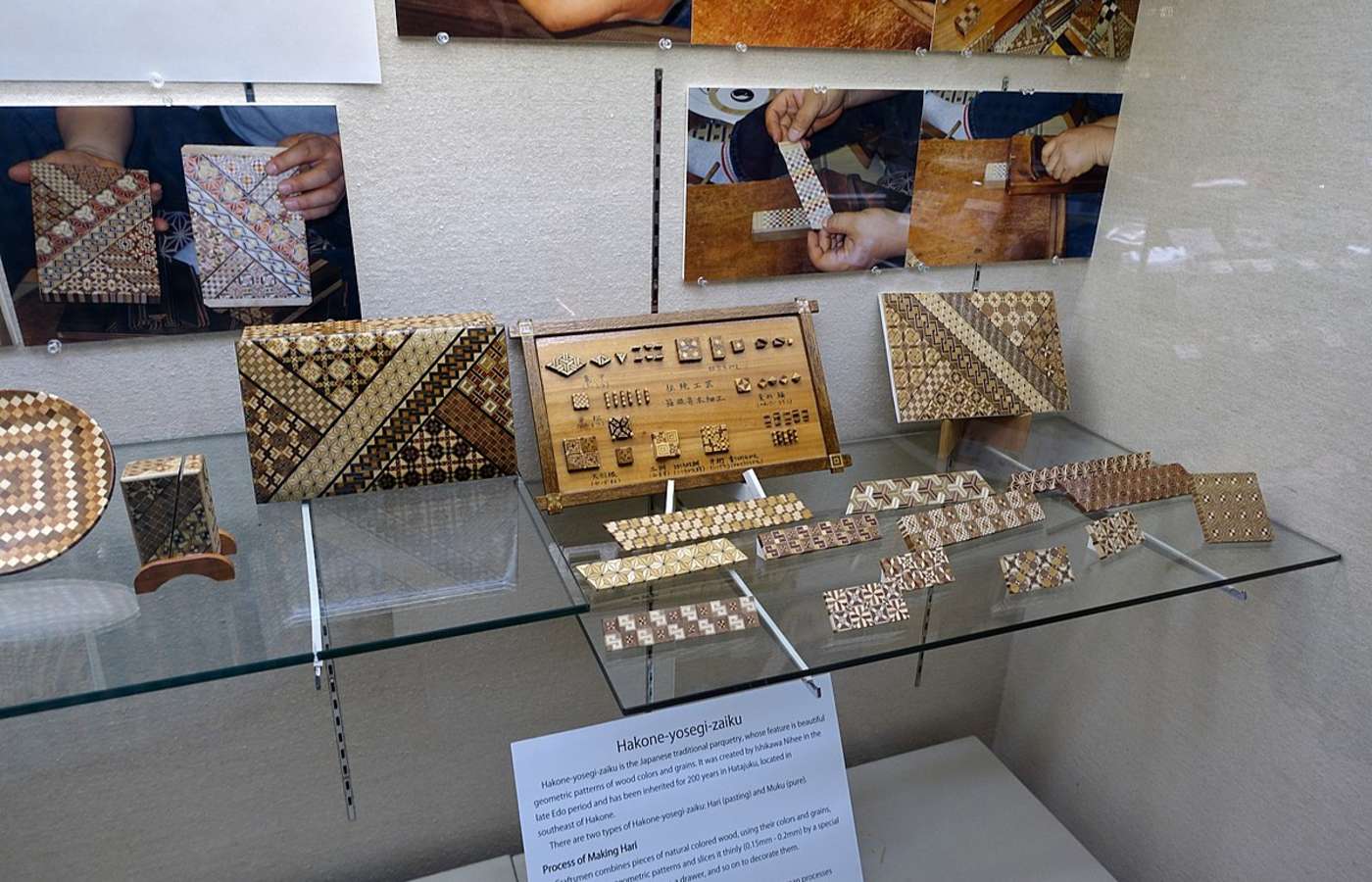
Photo credit: Daderot, CC0, via Wikimedia Commons
The most famous Yosegi Zaiku items are the brilliantly conceived himitsu-bako, or “secret boxes”, that require serious ingenuity to open by manipulating different sides of what look like normal wooden boxes. The steps required to solve these puzzles range from just seven to over nine-hundred! Since they can’t be opened without knowing the exact sequence, the boxes were used to hide valuable items. They remain extremely popular with visitors to Hakone, not just for their elusive beauty but the level of detail that goes into this traditional handicraft.
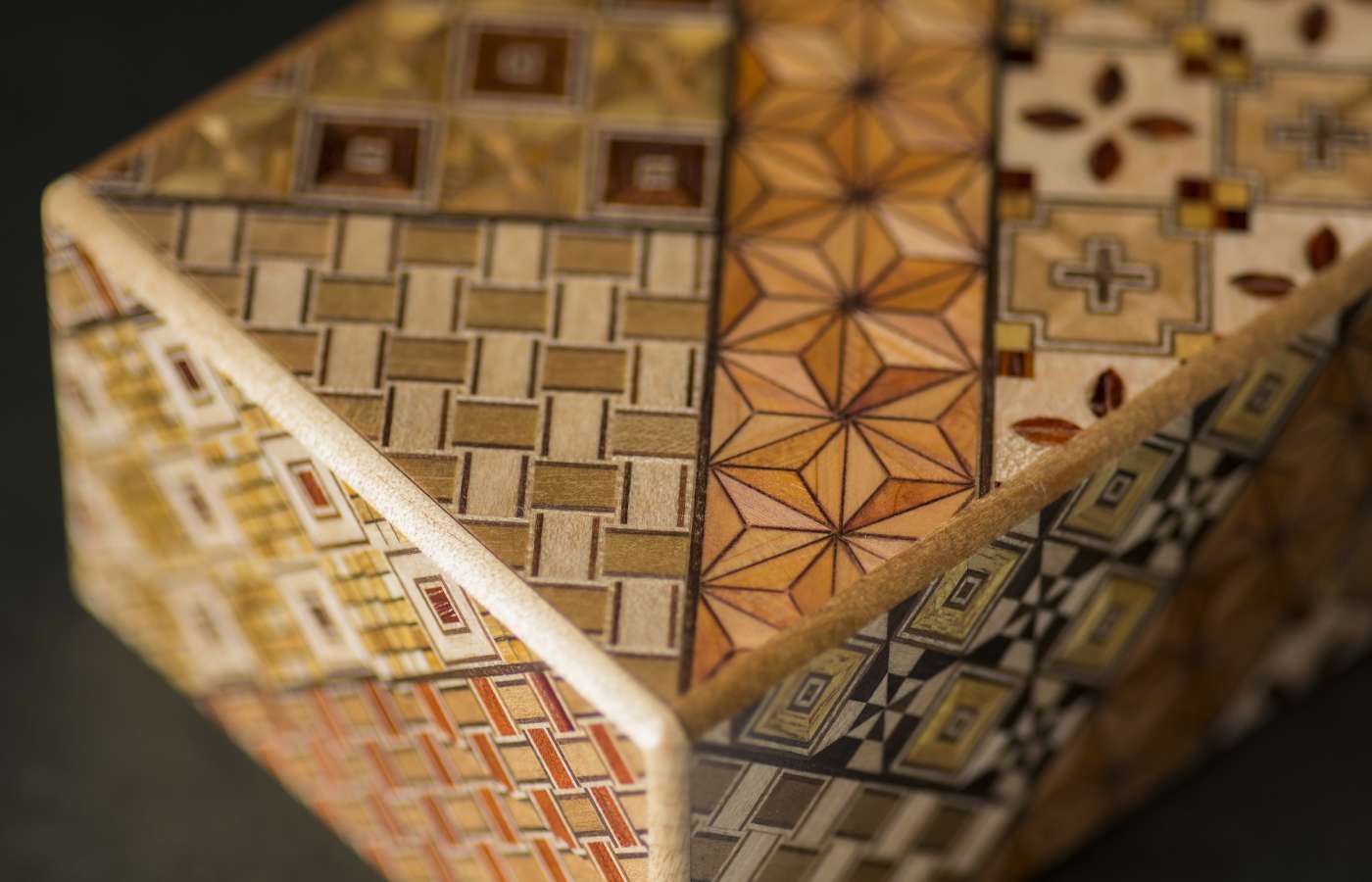
Yosegi Zaiku use over 20 types or wood and incorporate a range of geometric patterns, some of which require a tremendous degree of skill to execute. These ancient techniques make full use of locally sourced timber, promoting local industry while giving visitors to Japan a sense of how apprenticeship and craftsmanship are still highly valued in Japanese culture.
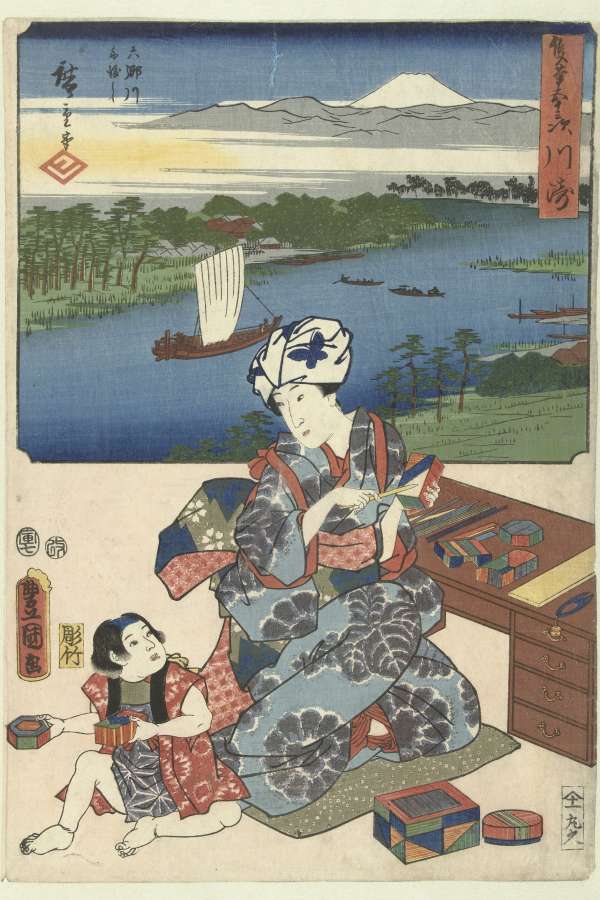
Photo credit: Utagawa; Kunisada (I); carver Yokogawa Takejiro; published by Maruya Kyushiro Kunisada (I), Public domain, via Wikimedia Commons
Echizen blades: world-class knives and blades from Fukui Prefecture
Echizen in Fukui Prefecture is a far-removed, rural area of northwestern Japan that specializes in a number of traditional crafts passed down through generations. Perhaps most famous are Echizen blades, which are some of the hardest, sharpest steel blades in the world.
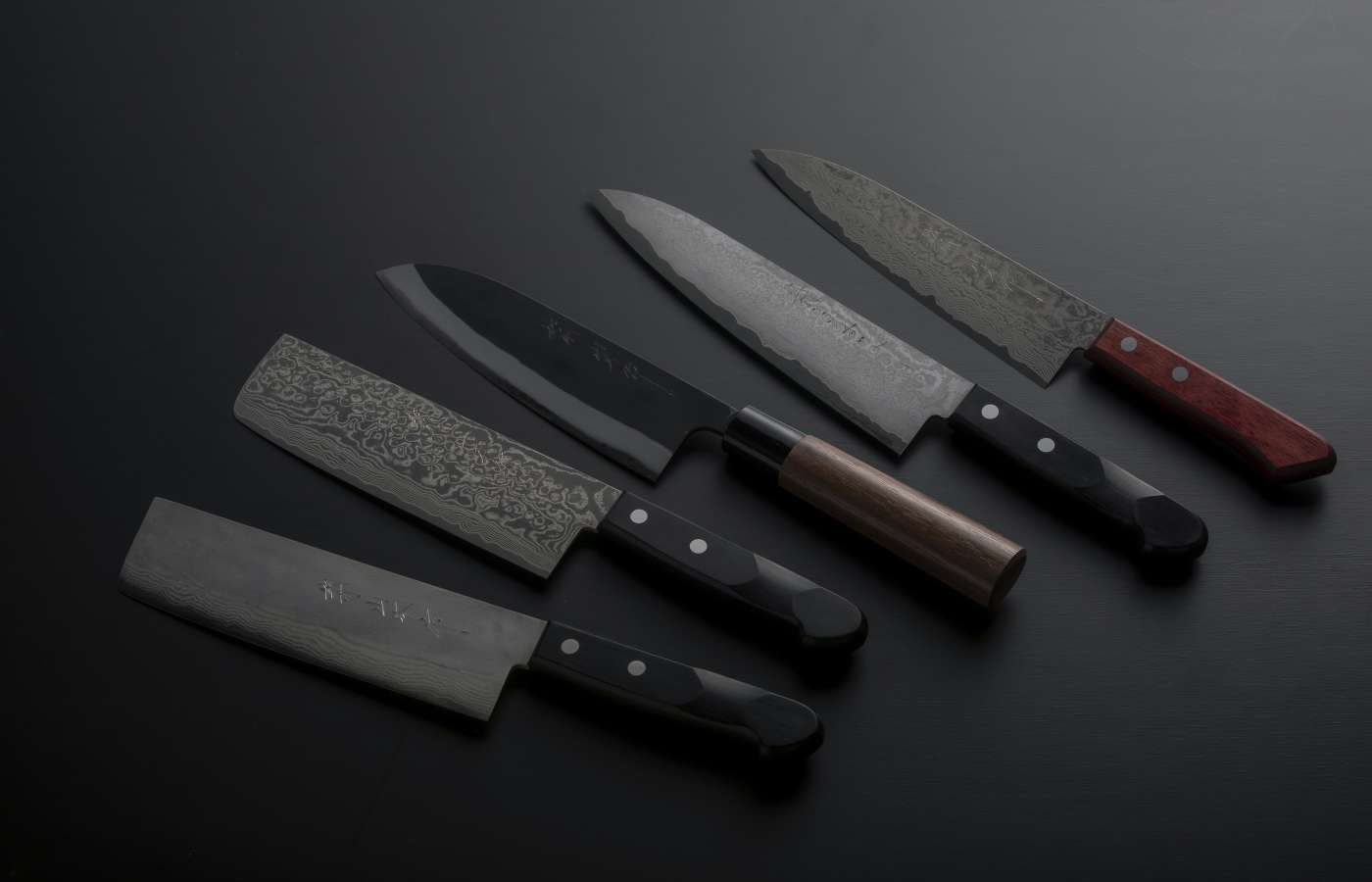
Photo credit: Takefu Knife Village
Visitors have the opportunity to visit the production workshop and see the process first-hand. Using techniques developed over 700 years, Echizen blades are meticulously tempered through a long forging process. This involves either forge welding high-carbon steel onto a soft ferrite core, or sandwiching the core between layered steel, yielding a knife edge that is razor sharp and extremely hard. Chefs and knife enthusiasts are known to make a trip to Echizen specifically to make the purchase of a lifetime.
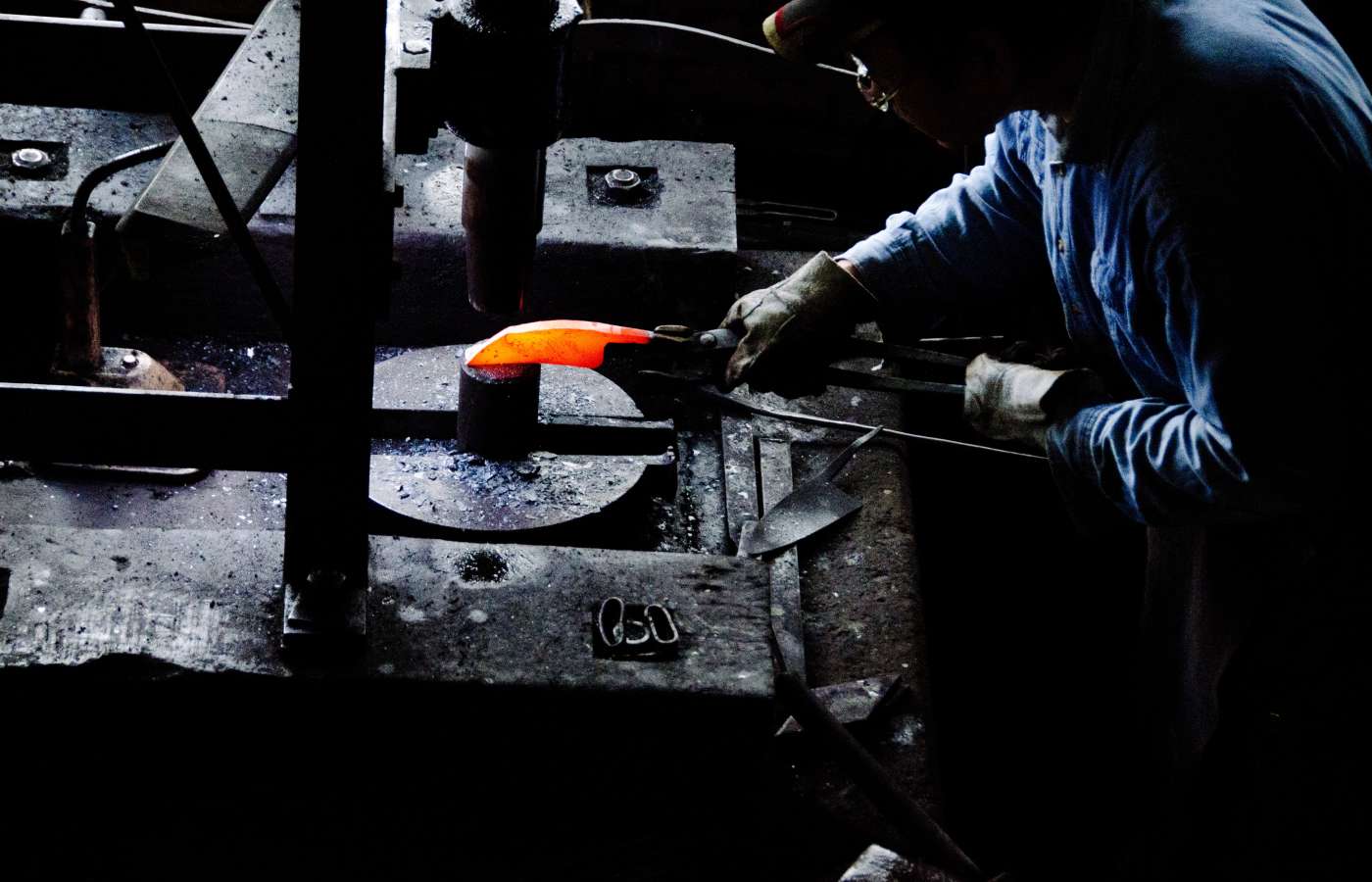
Photo credit: Takefu Knife Village
Echizen blades are a fantastic gateway into Echizen and Fukui prefecture, which is a hidden gem for travelers to Japan in terms of tradition, nature and historical allure. Come for the stunning craftsmanship employed in traditional knife making, and you might just fall in love with this area of Japan off the beaten path. Echizen is also highly invested in further tourism initiatives—why don’t you lead the charge to this amazing area? Your journey to a largely unknown part of Japan will certainly be a rewarding experience, while also benefitting local traditional industries.
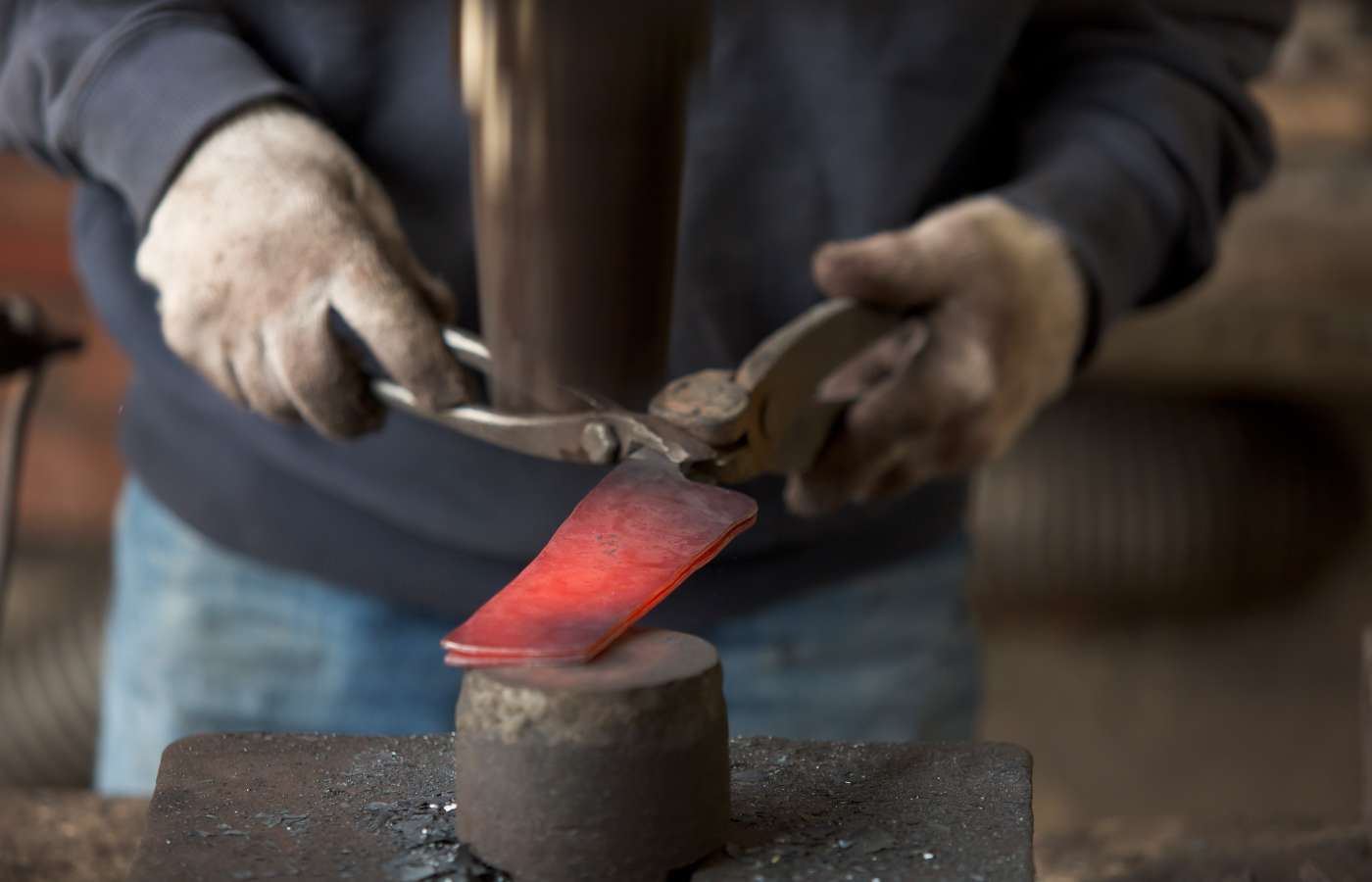
Photo credit: Takefu Knife Village
Japan has innumerable traditional crafts that still require dedicated apprenticeships and use ancient techniques that have gone largely unchanged throughout history. In addition to popular Japanese traditions like flower arrangement, pottery and dry landscapes, there is a wealth of rich artisanal legacy waiting to be explored. We hope you discover a niche craft that inspires you on your trip to Japan—and share its beauty with the world!
Business hours
Due to measures to prevent the spread of COVID-19, business hours may be subject to change; please check with the venues before visiting.
Information
Takefu Knife Village (Japanese only) |
Related Links
Echizen Tourism Board |




















































